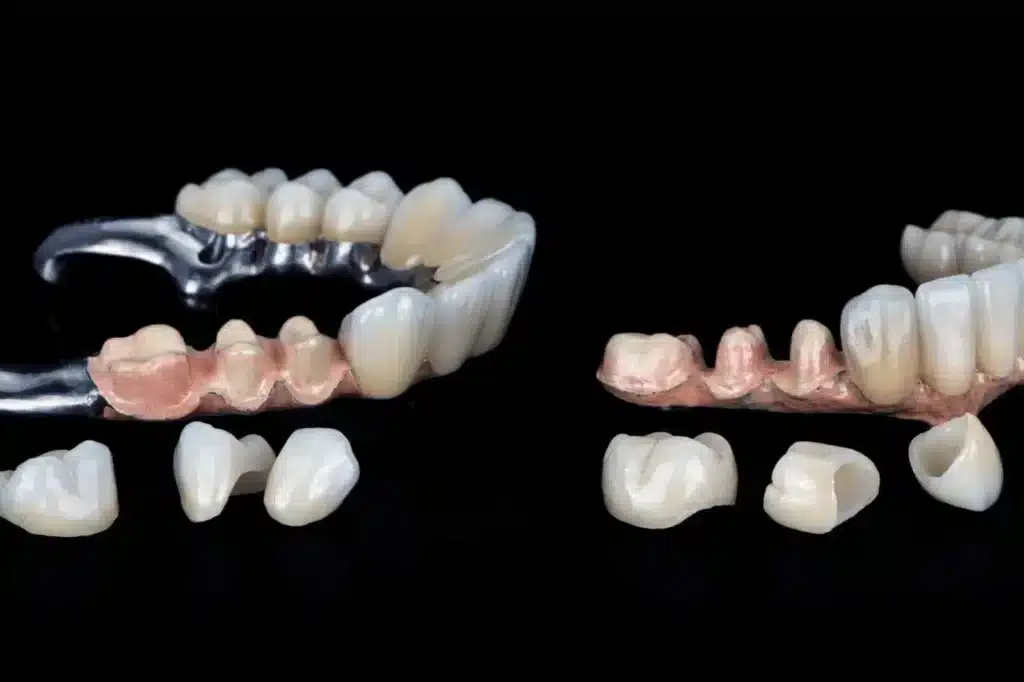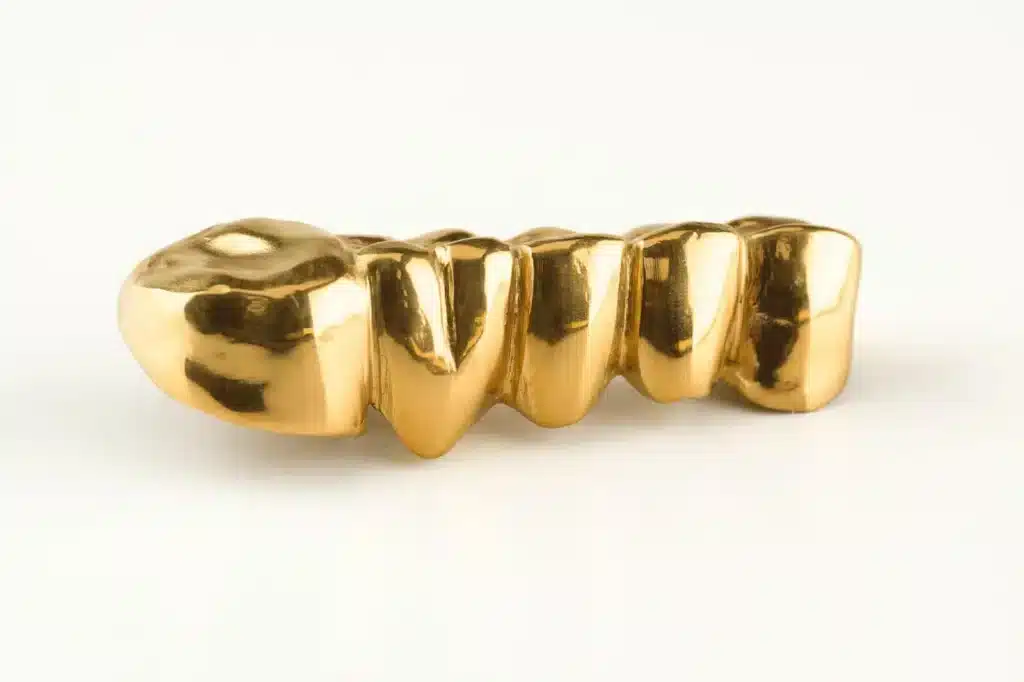Dental crowns are protective covers for damaged teeth. They excel in treating, enhancing, and safeguarding teeth affected by decay, fractures, discoloration, or irregular shapes. Beyond their durability as replacements, they also reinstate the proper functioning of your mouth. Dive in for a deeper understanding.
Types of Dental Crowns
Regarding dental crowns, variety meets functionality to cater to diverse oral needs.
Porcelain Crowns
Crafted to harmonize with your smile seamlessly, porcelain crowns boast natural aesthetics that meticulously mimic tooth color and texture. These crowns are a top choice for front teeth restoration, ensuring a beautiful and inconspicuous outcome.
Metal Crowns
Metal crowns prioritize strength and resilience. They come in various types, like gold, silver, and palladium alloys. These crowns, appreciated for their durability, are often chosen for molars, where strength is paramount.
Porcelain-fused-to-metal (PFM) Crowns
Balancing aesthetics with strength, PFM crowns sport an outer porcelain layer for aesthetic appeal, while a robust metal framework provides structural integrity.
All-Ceramic Crowns
For those seeking the pinnacle of aesthetics and biocompatibility, all ceramic crowns offer a high level of clarity that mirrors natural teeth. Furthermore, they are metal-free, minimizing the risk of allergic reactions.
Procedure
Getting dental crowns involves a well-defined process that ensures optimal results and patient comfort:
Initial Consultation: The journey begins with a comprehensive dental health evaluation. Your dentist will assess the tooth in question, discuss treatment options, and tailor a plan to your unique needs.
Tooth Preparation: During this phase, the tooth is carefully reshaped to accommodate the crown. An impression is then taken to create a precise mold that serves as a blueprint for crafting the crown.
Temporary Crown Placement: While your permanent crown is meticulously fabricated in the dental lab, a temporary crown is placed to safeguard the prepared tooth and maintain its function.
Permanent Crown Placement: Once the custom crown is ready, it’s expertly placed and adjusted for a custom fit. Advanced dental cementation techniques secure the crown in place, ensuring its longevity.
Post-Procedure Care: Proper post-procedure care is vital. This includes maintaining impeccable oral hygiene to prevent complications and addressing temporary sensitivity.

Cost of Dental Crowns in UK vs. USA
| Types of Dental Crown | UK (USD) | USA (USD) |
| Porcelain Crown | $500 – $1,200 | $800 – $1,500 |
| Ceramic Crown | $600 – $1,400 | $800 – $1,800 |
| Metal Crown | $600 – $1,200 | $700 – $1,300 |
| Gold Crown | $650 – $1,500 | $800 – $1,500 |
| Zirconia Crown | $700 – $1,500 | $900 – $2,500 |
| Emax Crown | $700 – $1,500 | $800 – $2,000 |
| PMF Crown | $700 – $1,500 | $800 – $1,800 |
Benefits of Dental Crowns
- Dental crowns reinforce compromised teeth’ strength and function, preserving their integrity.
- Transformative for your smile, crowns act as an aesthetic remedy, concealing flaws and creating a harmonious appearance.
- Crowns aid in improving chewing efficiency, ensuring your bite functions optimally.
- Investing in dental crowns means investing in the long-term health of your smile, with their durable nature.
- Crowns act as a barrier, preventing further damage to weakened teeth and ensuring they stay functional and intact.


